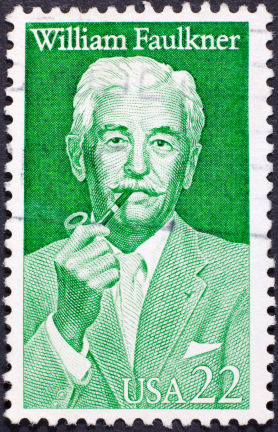Panel proposal for the 2012 Faulkner and Yoknapatawpha Conference
The proposed panel papers:
“Why Faulkner and the Digital Humanities Need Each Other: A Short Introduction,” Elizabeth Cornell
“Hypertext, the World Wide Web, and the Fiction of William Faulkner: A Backwards-Forward Look at America’s Greatest Postmodern Modernist,” John Padgett
“Digitizing Yoknapatawpha: Progress Report on a Work in Progress,” Stephen Railton
“Journey to the Center of Yoknapatawpha: An Experience of Digitizing Faulkner’s Fiction,” Taylor Hagood
Recently the digital humanities has been called “the next big thing,” as though it is a passing academic fad. In fact, it is a big thing that is here to stay and already has brought much richness to Faulkner studies, and it is poised to bring even more. Several notable projects currently represent Faulkner online, including John Padgett’s William Faulkner on the Web and Stephen Railton’s projects, Faulkner at Virginia, Absalom, Absalom! Electronic Text Center, and the newly launched Digital Yoknapatawpha. But compared to other major American authors, such as Walt Whitman and Willa Cather, who have a substantial online presence composed of digitized archival material, born-digital research, and pedagogical aids, Faulkner’s online presence is so far more limited in scope. Faulkner scholars have much to gain by delving in and taking advantage of the many innovations and resources offered by the digital humanities. This panel will demonstrate the importance of the digital humanities to the future of Faulkner studies and also discuss current digital projects engaging Faulkner’s work and life. In so doing, the panel will highlight how the digital humanities in the twenty-first century broadens, deepens, and limits our engagement with Faulkner, as well as consider the challenges currently inherent to the field. The panel will begin with a brief introduction by Elizabeth Cornell, who will outline what digital humanities means and what digital humanists do; John Padgett will examine the uses of hypertext and how the inter- and intratextual qualities of Faulkner’s writings make his works an especially good target for digitizing, if only intellectual property laws might permit such a thing; Stephen Railton will display and discuss the Digital Yoknapatawpha project currently underway at the University of Virginia; and Taylor Hagood will relate his experience of digitizing a story for the project, discuss the methods and challenges of digitization, and what is gained and lost by digitizing Faulkner’s work.
Faulkner’s opus remains as readable and important today as it was fifty years ago. What has changed are ways we can read, research, and evaluate his work. This panel will discuss a some of the digital resources available for those activities and reflect on the significance of the digital humanities to the reading, teaching, and scholarly study of Faulkner today. The panel’s overall goal is to demystify the digital humanities for those who do not know much about it, encourage those who do know something about it to venture more deeply into the field and bring Faulkner along with them, and invite those already immersed in the digital humanities to add their insights and experiences to the papers presented here.
This proposal was accepted. Read the paper abstracts.
